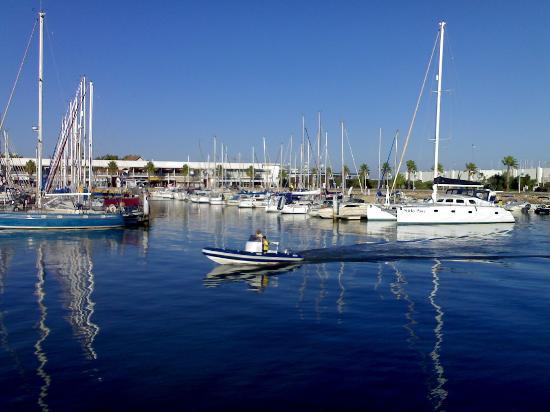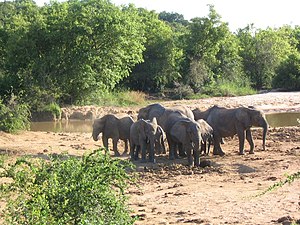I have just returned from Nigeria, which in itself is not news to anybody, and I also visited our capital city,
Abuja. Abuja is arguably one of the most beautiful cities in sub-Saharan Africa. If we don’t want to go that far, then it is the only beautiful city in Nigeria. It has got much about everything that a modern city should have – imposing beautiful public and government buildings; private abodes with exquisite out-of-this-world architecture (most of these are actually castles or villas, and not just houses, as only the Nigerian rich can build); the roads are neat, wide and motorable;

well-planned lay-outs; relatively good security; centre of Nigeria’s government, etc.
But alas, somebody forgot to include an effective, cheap public transportation system for the common man - rail, buses or any other. As a Nigerian, I am always awed and proud of it, but with mixed feelings and reservations. I am always at a loss why no Nigerian government has ever considered replicating Abuja in other state capitals around the country.
They would not, would they? Abuja is a “planned city”, as it was mainly built in the 1980s and officially became Nigeria's capital on 12 December 1991, replacing the role of the previous capital Lagos. As of the 2006 census, the Federal Capital Territory has a population of 778,567.
Abuja is known for being the best purpose
-built city in Africa as well as being one of the wealthiest and most expensive. The logic used for conceiving Abuja, by the Murtala Mohammed-Obasanjo military regime of the late 70s, was similar to Brazil building its capital Brasilia.
It is of course not my first or second time in this city built with the wealth Nigeria has gained from oil, and the sufferings of the people of the Niger Delta (Sorry to put a dampener on your sensitivities).
Indeed the residents of the real Abuja are not ordinary Nigerians.
Whenever I visit Abuja, I could not but help being overcome with mixed feelings. One, and the positive thing, is that Abuja is a testimony to Nigeria’s effort to be a modern state, and one that a Nigerian should be proud of.
The second, and definitely negative of disheartening, is that Abuja represents man’s inhumanity to man, in all its ramifications.
It is a testimony or evidence to the monstrous, contagious and murderous corruption of Nigeria.
A testimony to the debilitating effect that corruption has had on us since the military took over governance of this country. It is the evidence of greed, insincerity, mismanagement and bad governance of our country. It embodies the desire and effort of the corrupt ruling class that have enslaved their people for decades. Look at it beyond the issue of beauty and modernity.
Every time I visit this city, and talk to people, it is always the same sense of futility and pessimism, and incidentally, these are expressed by both the ordinary Nigeria on the street as well as those in various levels of the society – civil servants, politicians, private and business people.
All of them believe that the deliverance of this country is only by praying to God. They all believe, and these include those in Lagos, Ibadan, Ortukpo, Kano, Kaduna, Benin, Minna, Yola, Jalingo.
Ogbomosho, Calabar, Sokoto, Ife, Ado-Ekiti, Warri, etc, that only God can save Nigeria.
Mind you, I am a fairly religious person. At least believe in God, even if I don’t attend church regularly as my mother would have liked me to do, but I have a problem reconciling this “given-up” attitude of my countrymen that only God can deliver them from the evil cabal that is ruling them.
They do not believe that they, as a people, can and have to do it themselves. And I am talking about even the people who should not be saying such things.
I am talking about people, whose remit is to ensure the smooth running of Nigeria, either as civil servants, politician, military personnel, police, business people and the likes. One thing that comes to mind is that these same people are either being deliberately insincere with me and their countrymen and women, or they really do not know what to do.
Either way, we all know it does not bode well for the country, and explains, almost graphically, why the country is in such a mess as we find ourselves in today, and in the future too.
On the other hand, such sentiments shows us to be pessimists and a people, at least those ordinary Nigerians, who have no other choice than to live and struggle it out in Nigeria, who have given up on the country itself and are convinced that Nigeria’s salvation can only come from God.
Well, I agree that God can indeed save us, but I always ask them; have you heard of the saying that “heaven only helps those who help themselves”?
Abuja, being our capital city, is supposed to be an
embodiment of Nigeria, and Nigeria, in all ramifications – culture, politics, socio-political development, a testimony to a country rousing itself out of the ashes of civil war, religious riots and ethnic rivalries, on its way to being a modern and developed country. But no, you cannot see all these and many features of political and democratic emancipation in Abuja. What we see is a vagrant display of stolen wealth, outright oppression, arrogance of power, unchecked political, governmental and moral corruption, neglect of fellow Nigerians and all the vices that have virtually destroyed our nation, and turned the majority of Nigerians into paupers and/or crooks Well.
People tell me that the success of Abuja lays solely on ex-President Babangida, since it was him, more than any previous Head of State, who accelerated the building of Abuja and forced the civil service, the diplomatic corps, etc, to move into the partly-completed city in the 80s.
I might begrudgingly accept that, but then it is no wonder that the city is decadent like its “accelerator”.
What do we know? A lot of Nigerians made their money out of the building of Abuja, and are still making money, because the city is actually not complete and is still growing. All these to the grief of the Niger Delta people; no wonder they are aggrieved.
Can you blame them? However, it was for selfish reasons that IBB accelerated the building of Abuja.
He made that decision shortly after the Orkah coup, in which he was nearly bushwhacked and killed.
He surmised that Lagos, as the capital of Nigeria, was not safe for him, especially since he did not have plans to relinquish power for a long time, and made haste to retreat to the relative safety and proximity of Abuja to his Minna hometown as well as to the Nigerian Army facilities in the northern part of the country.
Also he could exercise better control of the armed forces from Abuja, instead of the coup-hardened soldiers based in Lagos.
Abuja typifies some of the failings in our society which, according to Tunji Lardner, has enough for everybody’s need but not enough for everybody’s greed; a society where the greed (of the elite) most often surpasses the need (of the populace).
You cannot be an ordinary citizen of Nigeria and live successfully in Abuja. The city is for rich, mostly corrupt Nigerians. All other people live on the outskirts of the city, called “satellite towns ”, and come into the city to satisfy the whim and services of the rich. The ostentatious ness and pretentiousness of the city are overwhelming.
The rotten smell and evil face of corruption are overpowering, nauseating and cannot be ignored, if you are not “one of them”.
But Nigerians seem to love it that way.
Mind you, I am not against being rich.
I would like, and work hard, to be rich too. Why not? I am just against corrupt enrichment. And that is what we have in Abuja.
Babangida, and subsequent leaders of Nigeria to date, ensured that living in Abuja is beyond the reach of the majority of Nigerians; not that I want 140 million Nigerians to crowd into Abuja, but you know what I mean. If a plot of land costs between 30 and 40 million naira, what would you build on it, for example? You had better build a castle.
The corrupt rich have cornered the real estate market. They have all the houses and the estates.
Most of these are politicians and ex- military leaders and civil servants.
Even the commercial properties are owned by them.
In fact, anything that is not government property is probably owned by these individuals.
I cannot know or list them all, but here’s an example. There is a large expanse of building called Sigma Apartments (I forgot which street it lies) and I was told it is owned by an ex-Minister for Sports.
See? That tells you why our football and other sports are spiraling downwards every day.
Several high quality hotels, guest houses, shopping complexes and plazas are owned by ex-military officers and serving politicians. And these people do not own one, but several each. In most of the “ big men’s” castles, you can count up to six exotic vehicles, while Abuja itself has no public transportation worth its name for the masses to travel in to and from work. Babangida forgot to include a mass transit or urban rail system in his master plan.
This rapacious land-grabbing and property- acquisition frenzy reminds me of Leo Tolstoy’s short story “How much land does a man need?” This was the story of a man, Pakhom who already had some land but went in search of more land, this time, freehold land, until he got to the land of the Bashkirs, where he was told he could take as much land as he could walk around in a day at the rate of a thousand rubles a day, but he must be back at his starting point everyday, by sunset. But Pakhom got greedy.











